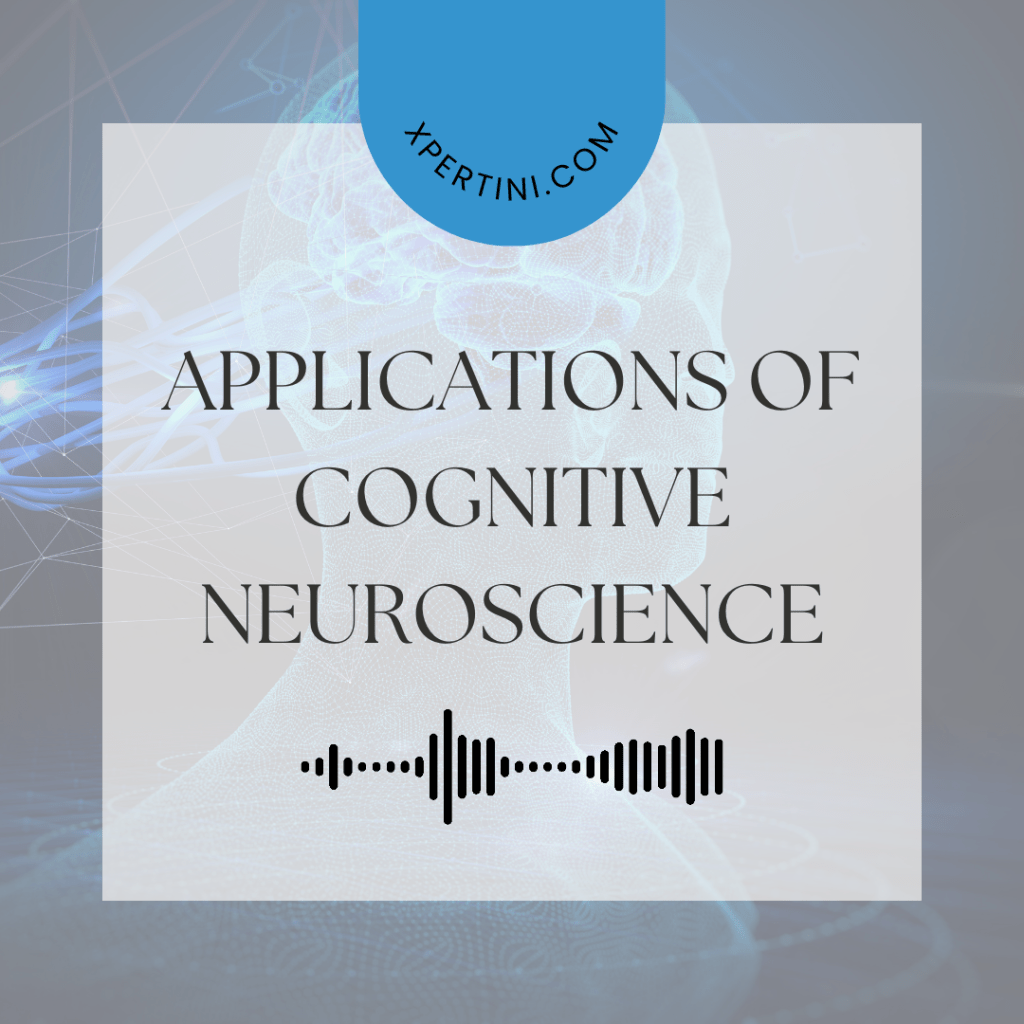Applications of Cognitive Neuroscience
Course Summary
This comprehensive course in Cognitive Neuroscience serves as an illuminating exploration into understanding the human mind and its neural underpinnings. Delving into the intricacies of the brain’s architecture, the course navigates through foundational concepts, historical perspectives, and cutting-edge neuroimaging techniques.
Beginning with the basics, the course provides a foundational understanding of brain anatomy and function, unraveling the complexities of neural structures and neurotransmitter systems. It serves as a testament to the importance of grasping these fundamentals to comprehend higher-order cognitive processes. From memory and attention to perception and decision-making, each cognitive function is dissected, connecting theoretical knowledge to real-world applications.
The journey advances into the historical evolution of cognitive neuroscience, highlighting landmark discoveries and the influential figures who shaped the discipline. This contextualizes the subject, emphasizing its changing nature and continuous adaptation to scientific breakthroughs. Understanding cognitive neuroscience’s roots sets the stage for appreciating its present-day significance.
A pivotal segment of the course is dedicated to neuroimaging techniques, providing a panoramic view of technologies that enable the observation of brain activity. The practical applications and limitations of these techniques are explored, offering an understanding of their role in advancing cognitive neuroscience research.
As the course progresses, it seamlessly transitions into the clinical realm, elucidating how cognitive neuroscience contributes to diagnosing and treating neurological disorders. From rehabilitation strategies to therapy based on cognitive principles, the practical implications of this knowledge in a clinical setting are thoroughly examined.
The course also extends its reach into technology, revealing the integration of cognitive neuroscience in technological development. The synergy between cognitive neuroscience and human-computer interaction takes center stage, showcasing the pivotal role of this interdisciplinary approach in shaping user experience design.
Furthermore, the course sheds light on cognitive enhancement techniques, providing insights into interventions designed to boost cognitive performance. From non-pharmacological approaches to practical applications, learners gain a holistic understanding of methods to augment cognitive abilities.
A particularly illuminating facet of this course is its exploration of cognitive neuroscience in educational practices. Learners uncover how neuroscientific principles can be harnessed to enhance learning outcomes, bridging the gap between theory and application in educational settings.
The journey culminates in a comprehensive exploration of diverse career paths within cognitive neuroscience. Insights into networking, professional development opportunities, and entrepreneurial pursuits offer learners a strategic roadmap for navigating their careers in this field.
In essence, this course serves as an intellectual voyage, combining theoretical depth with practical applications, and equipping learners with an understanding of cognitive neuroscience’s multifaceted landscape.
Course Overview
This course explores the practical applications of Cognitive Neuroscience, emphasizing its significance in various fields. Participants will gain insights into how understanding the brain contributes to advancements in technology, healthcare, and education, making it an essential course for those pursuing careers in these domains.
Course Objectives
Apply cognitive neuroscience principles in real-world scenarios.
Understand the role of cognitive neuroscience in enhancing human performance and well-being.
Analyze how cognitive neuroscience contributes to advancements in technology, healthcare, and education.
Course Outcomes
Apply cognitive neuroscience principles to analyze and improve cognitive functions.
Integrate neuroscientific findings into practical solutions for everyday challenges.
Develop critical thinking skills by applying cognitive neuroscience concepts to diverse contexts.
Design interventions based on cognitive neuroscience principles to address specific cognitive challenges.
Demonstrate proficiency in interpreting neuroimaging data for practical applications.
Collaborate effectively in interdisciplinary teams to solve problems using cognitive neuroscience approaches.
Assess the impact of cognitive neuroscience on education and learning environments.
Develop communication skills to articulate complex cognitive neuroscience concepts to non-expert audiences.
Create a comprehensive project applying cognitive neuroscience to a real-world problem.
Explore career opportunities in the field of cognitive neuroscience.
Course Audience
Students pursuing careers in psychology, neuroscience, or related fields.
Professionals in healthcare, education, technology, and research seeking to enhance their understanding of cognitive neuroscience.

